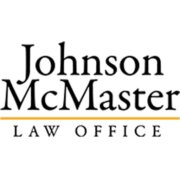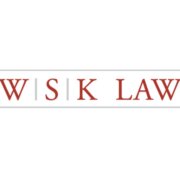Best Franchising Lawyers in Cambridge
Share your needs with us, get contacted by law firms.
Free. Takes 2 min.
List of the best lawyers in Cambridge, Canada
About Franchising Law in Cambridge, Canada
Franchising is a popular way for entrepreneurs in Cambridge, Canada, to operate businesses under an established brand. The process involves a franchisor granting the rights to a franchisee to use its trademark, business model, and support in exchange for fees and ongoing royalties. Franchising law governs the relationship between franchisors and franchisees, aiming to protect both parties by setting rules and obligations for disclosure, operations, and dispute resolution. In Cambridge, as part of Ontario, specific laws play a significant role in how franchises are established and maintained.
Why You May Need a Lawyer
Franchising involves complex agreements and significant investments. You may need a lawyer for several reasons when considering or running a franchise in Cambridge, Canada:
- Reviewing and negotiating franchise agreements to ensure your interests are safeguarded
- Understanding your ongoing obligations as a franchisee or franchisor
- Helping with compliance and regulatory requirements set by provincial authorities
- Advising on lease agreements or commercial property matters for your franchise location
- Assisting in dispute resolution if disagreements arise with the franchisor or other franchisees
- Reviewing disclosure documents as required by Ontario law
- Guiding you through the process of buying or selling a franchise
- Ensuring intellectual property rights and brand usage are properly managed
Legal advice is highly recommended before signing any documents or making significant investments in a franchise.
Local Laws Overview
Franchising in Cambridge is subject to federal law, but most relevant regulations fall under Ontario's legal framework. The Arthur Wishart Act (Franchise Disclosure), 2000 is the primary legislation in Ontario regarding franchising. Key points include:
- Franchisors must provide a detailed disclosure document to potential franchisees at least 14 days before any agreement is signed or payment made
- Disclosure documents must accurately present information about the franchisor, the business experience of their directors, costs involved, and any litigation history
- Franchisees have a statutory right to associate and form groups without penalty
- Both parties must act in good faith and abide by fair dealing obligations
- If proper disclosure is not provided, franchisees may be able to rescind the franchise agreement
Cambridge businesses must also comply with general business laws, employment regulations, and lease requirements, which can vary depending on the specific location and nature of the franchise.
Frequently Asked Questions
What is a franchise?
A franchise is a business arrangement in which an individual or company (the franchisee) obtains the rights to operate a business using the branding, systems, and support of an established business (the franchisor), usually for a fee and ongoing royalties.
What must be included in a franchise disclosure document?
A franchise disclosure document must include detailed information about the franchisor, fees and costs, conditions of renewal or termination, litigation history, and other material facts necessary for an informed decision.
How long do I have to review a franchise disclosure document?
In Ontario, franchisors must provide the disclosure document at least 14 days before you sign any agreement or pay any money related to the franchise.
Can I negotiate the terms of a franchise agreement?
Yes, franchise agreements can sometimes be negotiated, though the extent of changes depends on the franchisor. Legal advice can help determine which terms may be flexible.
What happens if a franchisor does not provide proper disclosure?
You may have the right to rescind your franchise agreement within a prescribed period and recover funds paid to the franchisor if disclosure requirements are not met.
What is the Arthur Wishart Act?
This Ontario law specifically governs franchising, providing rules for disclosure, fair dealing, the right to associate, and remedies for franchisees who suffer from breaches of its requirements.
Do I need a lawyer to buy a franchise?
While it is not legally required, working with a lawyer is strongly recommended to understand your rights and obligations and to minimize risks.
What are ongoing obligations as a franchisee?
You must usually pay royalties, follow the franchisor's systems, protect the brand reputation, and comply with any operational guidelines set out in the franchise agreement.
Can I sell my franchise?
Most franchise agreements allow for the sale or transfer of your franchise, but certain conditions or approvals from the franchisor may be required.
Where can disputes between franchisors and franchisees be resolved?
Disputes are commonly resolved through arbitration, mediation, or the courts, as specified in the franchise agreement or by law.
Additional Resources
If you need more information about franchising law in Cambridge, Canada, the following resources may be helpful:
- Ontario Ministry of Public and Business Service Delivery - Offers information on business laws, the Arthur Wishart Act, and franchising regulations.
- Canadian Franchise Association (CFA) - Provides educational materials, networking opportunities, and industry standards for franchisors and franchisees in Canada.
- Small Business Centres in Cambridge - Local centers offering guidance, workshops, and support on business ownership and franchising.
- Legal Aid Ontario - For assistance with finding a lawyer or understanding your legal rights.
Next Steps
If you are considering franchising in Cambridge, Canada, or need advice on an existing franchise, take the following steps:
- Research the franchise system thoroughly and request a copy of the disclosure document from the franchisor.
- Contact a qualified franchise or business lawyer to review all legal documents before signing.
- Consult additional resources, such as the Canadian Franchise Association or local business centers, for further information and support.
- Ask questions and ensure you fully understand your rights, obligations, and risks before making any commitments.
- If issues arise, seek legal help promptly to protect your interests and explore available remedies.
Careful preparation and sound legal advice are essential when navigating franchising law in Cambridge, Canada. Taking the right steps now can help safeguard your investment and your future in the franchise industry.
Lawzana helps you find the best lawyers and law firms in Cambridge through a curated and pre-screened list of qualified legal professionals. Our platform offers rankings and detailed profiles of attorneys and law firms, allowing you to compare based on practice areas, including Franchising, experience, and client feedback.
Each profile includes a description of the firm's areas of practice, client reviews, team members and partners, year of establishment, spoken languages, office locations, contact information, social media presence, and any published articles or resources. Most firms on our platform speak English and are experienced in both local and international legal matters.
Get a quote from top-rated law firms in Cambridge, Canada — quickly, securely, and without unnecessary hassle.
Disclaimer:
The information provided on this page is for general informational purposes only and does not constitute legal advice. While we strive to ensure the accuracy and relevance of the content, legal information may change over time, and interpretations of the law can vary. You should always consult with a qualified legal professional for advice specific to your situation.
We disclaim all liability for actions taken or not taken based on the content of this page. If you believe any information is incorrect or outdated, please contact us, and we will review and update it where appropriate.










